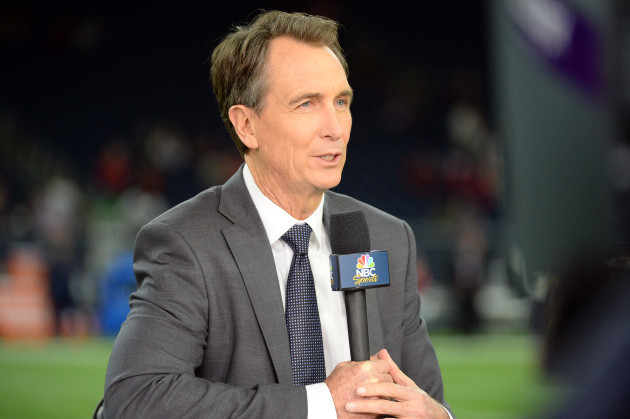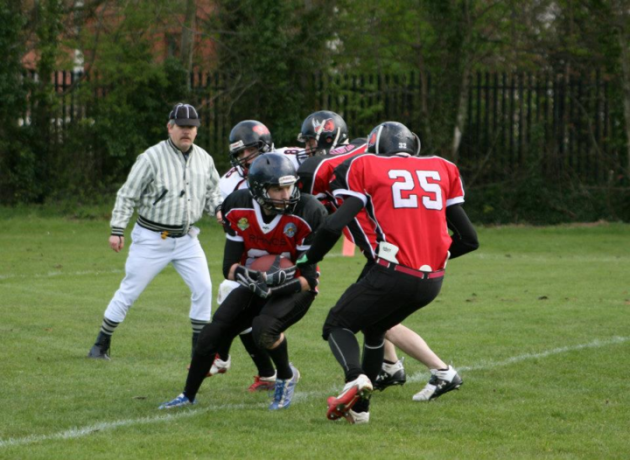BACK IN 2009, Sam Monson was catching touchdowns in the Irish American Football League for the DCU Saints. He was also just about to find a new career with a then unheralded website called ProFootballFocus.
At first, few people paid much attention to the site save a few fellow users of the official UK NFL forum. But gradually, those looking for more than the usual cliches that came with a lot of sports coverage at the time started to gravitate towards it.
This was something different as, not only did PFF offer the basic stats such as snap count or how many passes a quarterback completed in a game, but it graded each individual play and gave scores to players — such as offensive linemen — that most sites at the time ignored.
There was another facet to PFF that nobody knew about though. The website was keeping track of even more advanced analytics that it didn’t make available to the public but that it hoped to sell to NFL teams.
For example, on any given pass play, PFF didn’t just record who threw the football, who caught it and how many yards the receiver gained after completion like most publications at the time.
It also timed how many had seconds elapsed between the snap and when the quarterback released the ball, exactly what each of the 22 players did on the play from the cornerback who made the eventual tackle to the running back blocking for the quarterback.
And every single one of them was graded positively or negatively, something that had never been done before.
The teams and players started to pay attention and now PFF provides individual player data to 20 of the 32 NFL teams as well as agents of players looking to make as much money as possible when the next round of contract negotiations begins.
“Neil Hornsby is the guy who set up the site as a way of quantifying who was playing well and who wasn’t,” Monson, now a senior analyst with PFF, told The42 this week.
“I mean, you watch games and you hear commentators saying ‘this guy is one of the best in the league’ but the question Neil asked was ‘is he really?’
“You have to remember, this was before sports had started making any kind of advanced statistics available so PFF was a way of him trying to quantify this stuff. Then Ben Stockwell was the first guy he got in to help him grade games and players and I was the next man up.”
If you’re a fan of American football and the NFL in particular, you’ll know Monson’s boss Cris Collinsworth, colour commentator for NBC and widely regarded as TV’s best analyst.
“Cris was looking around for something to help him with studying up on games and he just found that he wasn’t able to track as much information as he would have liked with all the work he does on NBC, etc.
“So he wanted a shortcut, to find a group of people who were doing the analysis already and who had data that he could use to prepare for a broadcast. He started using PFF and he thought ‘I love this so much I want to buy into it’ so he did.”
A day in the life of a typical PFF employee is really busy.
“Basically, as soon as the first group of games finish on a Sunday evening the analysis starts. There are two different people watching each game, one doing the analysis itself and the other doing player participation stuff such as who lined up where, what they did, etc.
“That takes about six to eight hours depending on the game. You put the two of them together and that’s what gives you the game grade that goes up on the website. But we also have an extensive set of checks which involves everything being blind checked by somebody.
“We’d also do some further analysis later in the week when more footage is made available and there’s another review check with some NFL feedback and then, by Tuesday evening, all the NFL data is finished and we move on to analysing the college games from the weekend.”
It’s not just players looking to get paid who seek data, ahead of this week’s Super Bowl, players have requested data on opponents they’re going to be facing in a bid to work out strengths and weaknesses but Monson says that players usually use the data to self-scout or just to get the numbers to show they’re the best in their position.
PFF isn’t for everyone, however, with one of the frequent criticisms of the site being that they can’t possibly know how to grade a player when they don’t know what the play call was and, therefore, what the player was supposed to be doing on that particular play.
It’s something Monson rejects.
“The bottom line is that football isn’t that complicated and it’s not the sort of sport where you can’t understand what’s going on if you’re not in the room. There are, of course, going to be occasional plays where a specific assignment makes one thing look like something else entirely.
“But there’s no way around that and it’s the same for teams scouting opponents but it’s a tiny fraction of plays and if you watch enough of a team, you know pretty much what they’re trying to run.
“A lot of the time that criticism tends to come from coaches who are getting quizzed in a press conference and the journalists are asking why a left tackle is starting despite giving up 10 sacks and having the lowest grade on PFF over the last half a dozen games.
“10 years ago, the coach could say ‘he’s playing fine, why would we think about benching him?’ but now, he’s been asked questions with our data to back them up and so he just dismisses the data by saying we don’t know the assignments, all that kind of stuff, rather than actually answering the question.”
Monson, perhaps because he is based in Ireland, takes some flak on Twitter from people who suggest he can’t possibly know what he’s talking about because he didn’t play in the NFL. It’s not something that bothers him, however.
“You definitely get some of that but it’s never really from the type of person you’d pay that much attention to. It tends to come from a section of NFL fans that you’d be really happy to ignore.”
As for the Super Bowl this weekend, Monson’s a massive fan of the Denver Broncos defence and says it’s not fair to compare what they did in the Super Bowl two years ago with what we can expect from them on Sunday night.
“This could be a really low-scoring affair that’s likely to come down to turnovers and could well be won by the first team to get to 20 points.”


